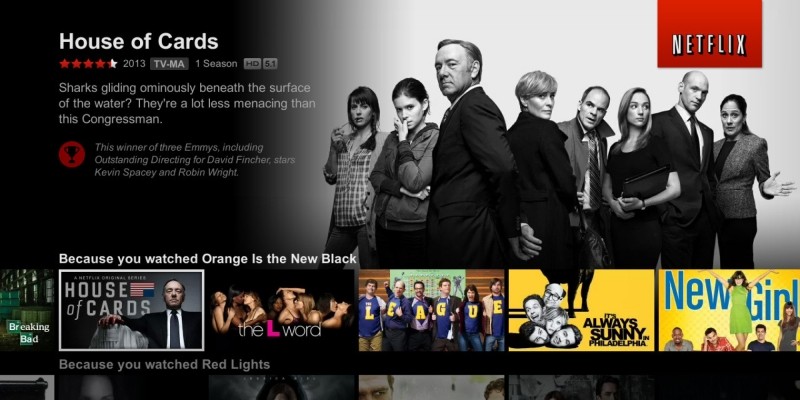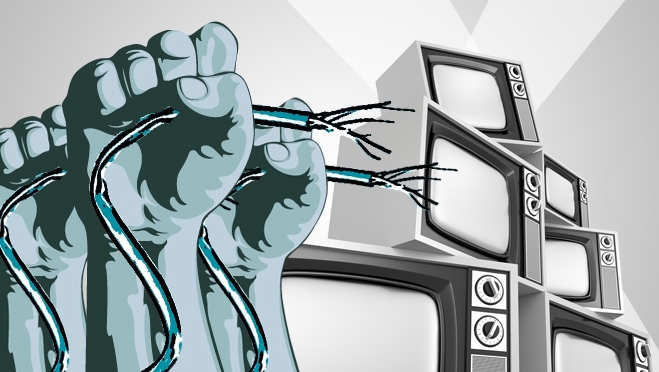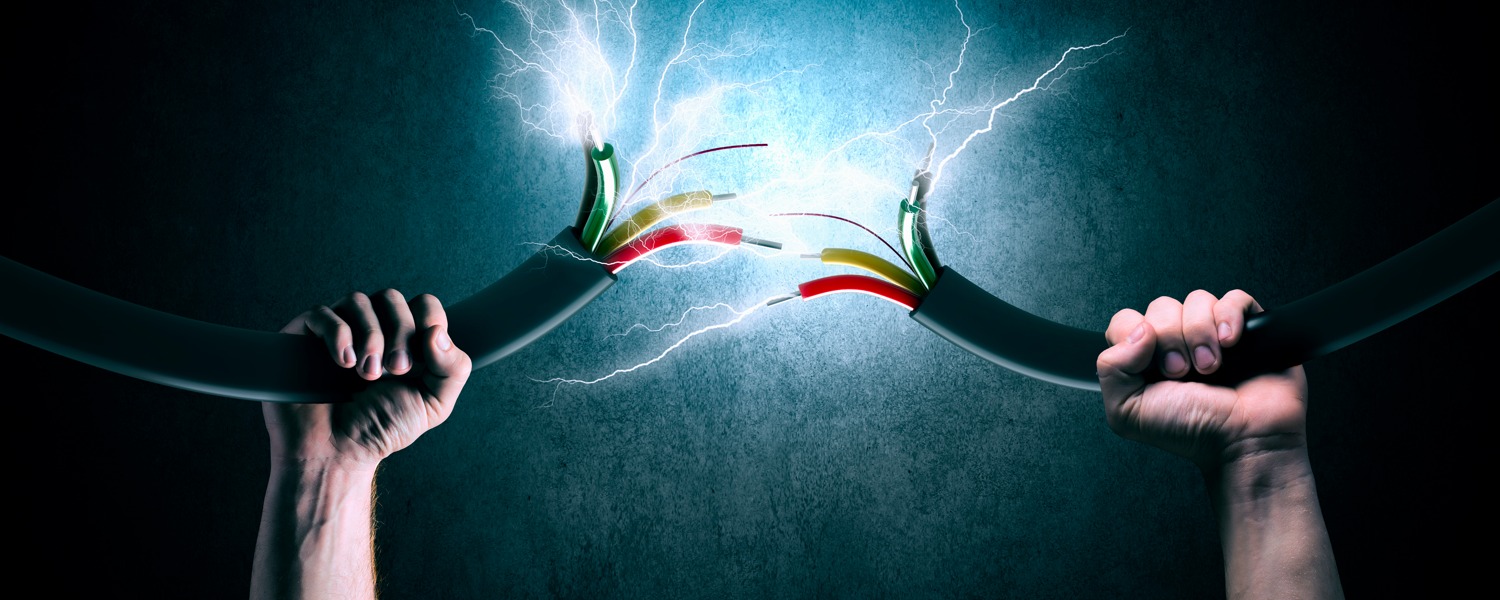My household cut the metaphorical cable cord about five years ago, so I've watched this idea evolve in the media from "insane notion" to "trending trendy trend" to "cable industry crisis." If the headlines are to be believed, consumers are abandoning traditional TV in droves, embracing ever-easier-to-use streaming gadgets and apps, and watching their favorite shows mere minutes after they hit the usual airwaves.
But the truth is actually a lot more complicated than the news has led you to believe. In an effort to help you decide whether cable abandonment is right for you, we're tackling seven major cord-cutting myths. To that end, we've borrowed some official Mythbusters terms, labeling each myth either busted or plausible. Read on to find out whether all cord-cutters are pirates, how much money you could save, and more.
Myth 1: Cable-Cutting is on the Rise
Status: BUSTED
This is probably the biggest myth of them all, that millions of cable subscribers are abandoning their post. Cord-cutting proponents and industry doomsayers alike point to big losses at Comcast and Time Warner.
"Focusing on the travails of the biggest cable companies obscures the reality that ... the total number of pay-TV subscribers is slightly higher now than it was at the end of 2008 and that there were probably more people paying for television subscriptions at the end of 2013 than at the end of 2012," writes Bloomberg.
The article points to subscription gains at AT&T's U-Verse and Verizon's FiOS services, as well as an increase in satellite subscribers. For now at least, the paid-TV model doesn't seem to be under that much of a threat.
Myth 2: All Cord-Cutters are Pirates
Status: BUSTED
Of course, I've never pirated any media for any reason ever. (Stealing is wrong, kids!) But hypothetically speaking, there may have been a time when getting your favorite TV shows and movies without cable involved a trip down BitTorrent lane.
However, there are way more legal options around nowadays. Amazon Prime members get free streaming, Netflix lets you binge-watch to your heart's content, Hulu Plus grants access to the latest TV episodes, and some networks will let you watch episodes of popular shows on their websites for free.

Are all of these options free? No, but neither is piracy. Even assuming you never get caught, you'd likely still want to pay for a VPN at the very least.
Myth 3: Cutting Cable Will Save You a LOT of Money
Status: PLAUSIBLE
Cable is expensive, especially if you're paying for a premium package. But don't assume that cutting the cord will automatically save you a bundle.
For one thing, there's the start-up price. The initial hardware costs can run anywhere from $30 (for a streaming stick like the Chromecast) to $99 for a media receiver (like a Roku or Apple TV) to almost $500 (for an Xbox One). If you're the DIY sort, you can build your own HTPC (home theater PC) and the only limit on price will be what you can stomach. Don't forget your Internet bill --- if you're not bundling cable and Internet anymore, your ISP will probably charge you more.
Once you've got the hardware, you'll start getting your media à la carte from the streaming service(s) of your choice. As mentioned above, each service offers a little something different, so you might end up with multiple subscriptions, each costing $7 or more per month. If some movies or TV shows aren't offered by them, you can always rent them from iTunes or Google Play for about $1 to $3 a piece. For sure, all of this is probably still cheaper than paying the cable company hundreds or thousands of dollars a year, but it's easy to lose track of all those little purchases.
Myth 4: Cutting the Cord is Your Only Option for a Cheaper Cable Bill
Status: BUSTED
If you're not the dickering type, this myth is awfully hard to bust. But walking away from cable entirely is not your only option for a cheaper bill, because bargaining for a lower price from the cable company works fairly often. However, we suggest you consult one of the many guides to negotiating a better bill that are available online before calling them up and asking nicely.

In general, you'll have a better chance of lowering your bill if there's at least one competitor in your area. Also, be aware that simply choosing a cheaper plan with fewer channels could be the right option for you.
Myth 5: You'll Still Be Able to Watch All Your Favorite Recent Shows
Status: BUSTED
The key word here is "all." If you want to see the very latest episode of Agents of S.H.I.E.L.D., then follow that link and enjoy. But if you want the latest episode of Game of Thrones, then you're legally out of luck if you've cut cable. Even if you're one of the naughty people who've "borrowed" an HBO Go password, you're probably not going to see the show on the night it airs. When it comes to cable-exclusive content, cord-cutters just have to avoid spoilers until the Blu-ray release... or become pirates.
Myth 6: It'll be Easy to Watch Live Sports
Status: BUSTED
Have you ever watched the ESPN website's football play tracker while streaming a radio broadcast of the game and trying to follow the action via tweets? Don't bother, it's depressing. For someone who grew up obsessively watching football, missing my games has been the worst part of losing cable. Yes, you can buy a streaming pass from the NFL, NBA, NHL, or MLB to watch out-of-market games, but that's essentially useless if you root for the home team.
"Home games are blacked out in the first place to protect local cable stations from losing viewers," TechHive explains. "More television providers are becoming willing to provide streaming access to live video ... so long as they are accessed by paying subscribers, not cord-cutters."
It's worth noting that casual sports fans may be able to pick up a few local games with an antenna, but your reception results will vary. For now, sports remain the Achilles heel for cord-cutters.
Myth 7: Cutting the Cord is So Easy, Anyone Can Do it!
Status: PLAUSIBLE
We're calling this myth "plausible" because it's absolutely true that anyone can give up cable and go digital --- but it is by no means easy. Even tech-savvy folks might hit the occasional snag when working on their setup and feel discouraged.

The keys to cutting the cord seem to be perseverance, practice, and time. Giving up cable can be a scary thing, but it isn't a bad thing. (I've certainly never looked back!)
However, if cutting the cord seems too complicated for you right now, give it a few months. More apps and media streamers are being invented all the time, so the right device for you could just be waiting in the wings. If you are ready to cut the cord, make sure you know what you're signing up for before you break out the scissors.
Looking for more details on how to take the plunge? Be sure to check out our guide to streamers, as well as Gizmodo's fairly thorough cord-cutting walk-through.
Republished with permission. Marcy Bonebright is a Features Writer at dealnews.
Image credit: Shuttersotck, Legion of Decency
